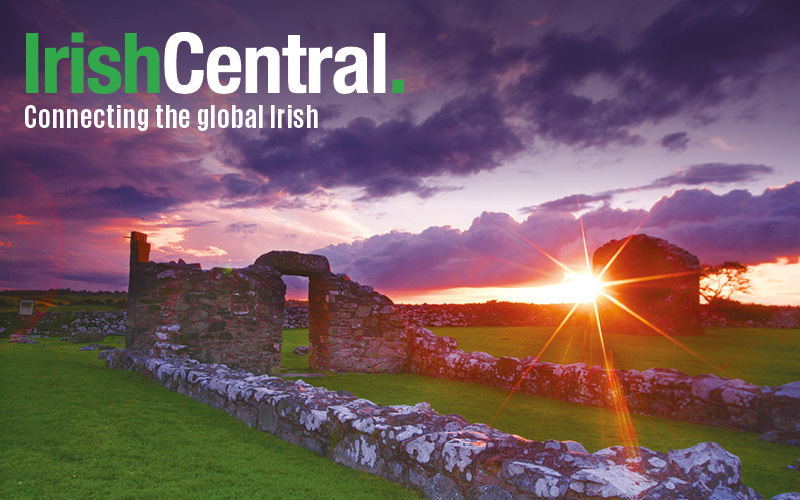Charles “Chuck” Feeney, who was born in Elizabeth, NJ, the son of Irish-American parents, always believed that those with money should use their wealth for the greater good.
“I had one idea that never changed in my mind – that you should use your wealth to help people,” he once said.
And so, in 1982, he established The Atlantic Philanthropies, a foundation dedicated to using the money of those better off to bring about lasting changes in the lives of disadvantaged and vulnerable people.
To date the foundation has granted over $7 billion dollars to projects worldwide promoting education, health, peace, reconciliation and human dignity, and few countries have benefited more from its work than Feeney’s ancestral home of Ireland.
We've a lot to be grateful for to The Atlantic Philanthropies in the Republic of Ireland https://t.co/8zXE8COMWc via @YouTube
— Sandra Irwin-Gowran (@IrwinGowran) July 29, 2015
Up to $2 billion dollars has been invested in Ireland – north and south – as Feeney has given back to the birthplace of his ancestors.
Writing about the foundation’s investment in Ireland on their website, President and CEO of The Atlantic Philanthropies Christopher G. Oechsli describes Chuck Feeney as a “visionary entrepreneur” who “saw untapped value in the people of Ireland and sensed a convergence of factors that would allow him to add still more value to their efforts.”
This untapped value, however, needed help and so through the foundation, Feeney began investing in the promise of Ireland’s people and future.
Thanks to Feeney and Atlantic the University of Limerick has been transformed from a small institute with 735 students into a leading university with more than 13,000 students, even clinching the title of University of the Year in 2015.
Well done to @ULPressOffice University of Limerick on being named the Sunday Times Univeristy of the Year 2015 #UL.
— Media HQ (@mediahqnews) September 26, 2014
A chance meeting between Feeney and Ed Walsh, then the president of the fledgling National Institute of Higher Education in Limerick, began 25 years of development and expansion for the university, which in 1989 had not yet even been conferred with university status.
“Atlantic’s investments in Ireland began in the late 1980s,” writes Oechsli.
“It was a time of recession and division, but Chuck saw possibilities. In 1990, building on its experience funding higher education in the United States, Atlantic made its first major investment in Irish physical capital: a more than $15 million donation to construct at Limerick a postgraduate research and cultural center on campus.”
Grants from Atlantic have also allowed UL to expand across the River Shannon to a new campus and link the northern and southern campuses over the river through the building of An Droichead Beo, or “The Living Bridge,” which also links Co. Limerick to Co. Clare.
Limerick is not the only third level Irish institution to benefit from Atlantic’s generosity, however. As the sector's largest private funder, Atlantic has invested over $300 million in Irish higher education since 1999.
As Oechsli writes, “The intent was to make Ireland more attractive to top-quality students and faculty, with the ultimate goal to keep them productively engaged and employed in the then-burgeoning Irish economy of the 1990s.”
Feeney’s ancestors hailed from Enniskillen in Northern Ireland, however, and so his attention turned to the ways in which he could end the ongoing sectarian violence and conflict then tearing Northern Ireland apart.
“At that time, I felt that the business of bringing a solution to the problem was as good a business as you could get into,” Feeney said.
Feeney played an important role in laying the groundwork that would lead to the signing of the Good Friday Agreement in 1998 and, over the past 25 years, has invested $21 million in advocating for and securing human rights in Northern Ireland.
No Irish American in history has given more to Ireland.
Unfortunately, The Atlantic Philanthropies, as a limited life foundation, will cease grant-making in 2016, but not until they have invested further in the country of Feeney’s ancestors.
“Atlantic has engaged with its Irish grantees, partners and collaborators to, as Chuck once wrote, ‘achieve good value and lasting impact,’” Oechsli continues.
“We have not been spending down, we have been investing in the promise of Ireland’s people and future. That investment is not quite complete, as a number of exciting new announcements in the coming months will demonstrate.
“And while it is still difficult to draw our grant-making to a close, we are confident that the ripples of Atlantic will be felt across our shared ocean for generations to come.”




Comments